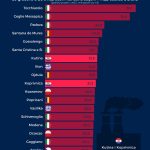ZAGREB, March 20, 2018 – The Union of Autonomous Trade Unions (SSSH) on Tuesday condemned announcements, released through the media, that raising the retirement age to 67, which was to have been introduced as of 2038, will be introduced as of 2033, which means that everyone currently under the age of 52 will be required to work until they are 67.
Instead of discussing various ways of resolving this issue based on sound analysis, “unofficial sources” are deliberately presenting just one solution which isn’t particularly justified nor can it contribute to a higher level of pension allowances, SSSH underscored in a press release.
Life expectancy in Croatia (78.2 years in 2016) still remains to be about three years less that the average in the European Union (81 years), SSSH stressed.
The situation is similar in other new EU member states, most of which are currently not even considering increasing the retirement age beyond 65. Alongside Croatia, the exception is Slovakia where retirement age is 62. Seven new EU member states still have not set 65 as the retirement age.
Banning people from retiring before 67 won’t create jobs and Croatian workers, who are too old for Croatian employers once they turn 50, will be condemned to unemployment and poverty in their old age, SSSH believes.
Croatia has to find a way to keep people aged between 50 and 64 employed. Their employment rate in Croatia is the worst after Greece (38.1% in 2016, compared to the EU average of 72.4%).
The second essential question is how to increase earnings, which includes raising the minimum wage, preventing it from being abused, but also establishing a stimulating framework for collective negotiating, which is the most effective mechanism to secure wages at an acceptable level for workers and employers, the union said.
As for the future of the pension system, it is important to finally embark on combating the grey economy, including unreported work and paying a portion of the earnings in cash. It is estimated that the grey economy in Croatia accounts for 25% to 30% of Gross Domestic Product (GDP), which means that a significant portion of the deficit in the pension system is generated by the non-payment of contributions on labour in the grey economy.
Instead of focusing on the expenditure side of the pension system and reducing pension rights, it’s time to focus on its revenue side, SSSH said.







